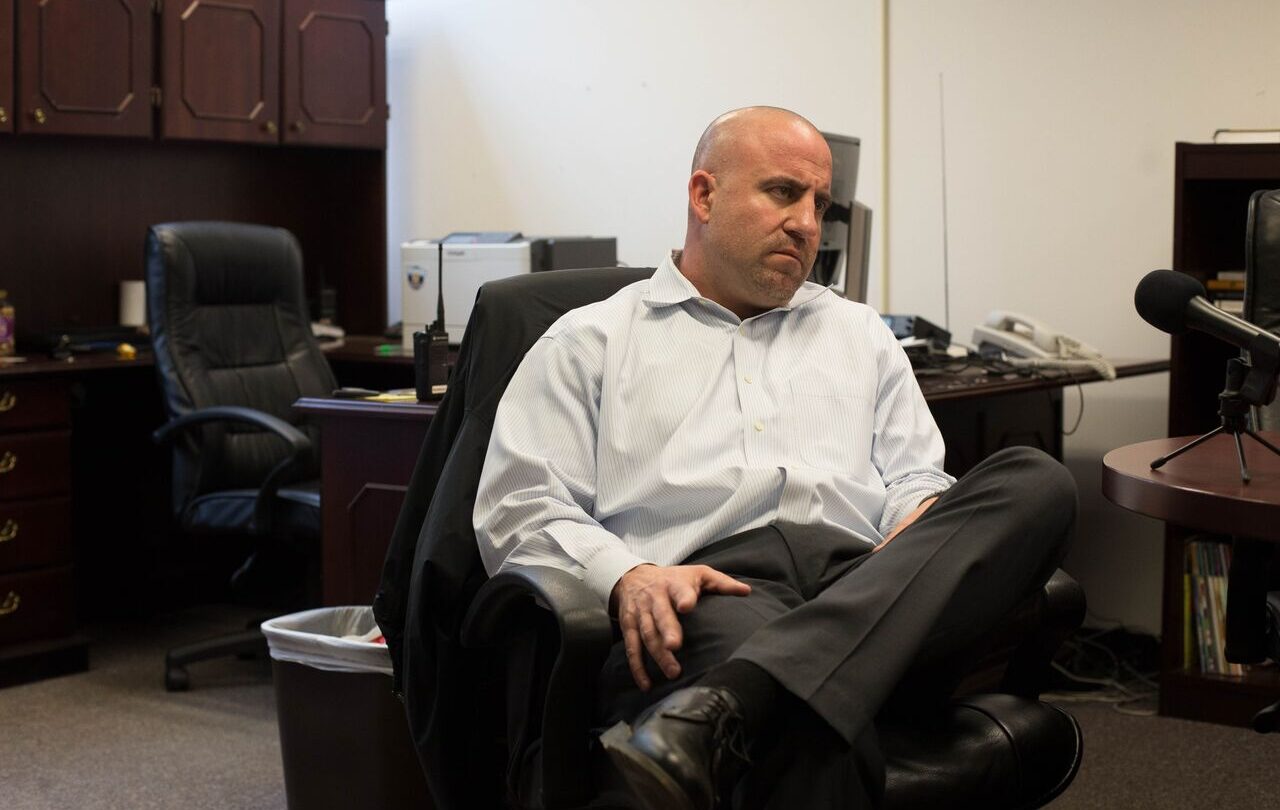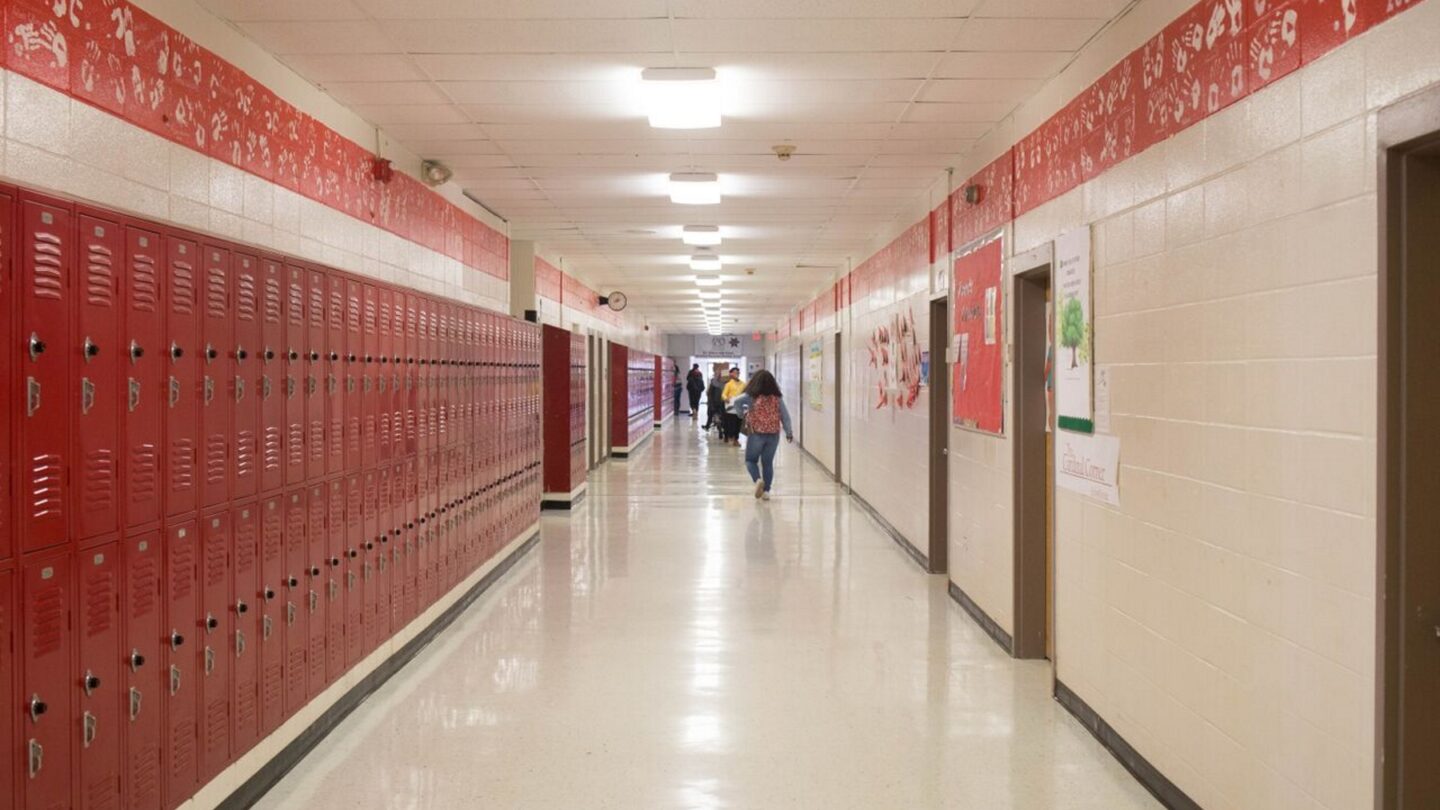High student turnover can be a common problem for schools in low-income areas. Families move from school to school for many reasons: a new job, an illness, family issues or an eviction.
For some families, it can be hard to find stability. Often, that starts with finding steady housing.
That was the case for Christine Hardy. She and her two daughters now live in a three-bedroom apartment in Lithia Springs.
Always On The Move
Hardy, who is originally from Illinois, says her life used to be pretty transient.
“We probably moved three times in Illinois,” Hardy said. “I thought I’d met the love of my life so I moved to Colorado. We stayed in Colorado for six months. His father had a stroke. We came here.”
After they moved to Georgia, the couple didn’t really settle down.

“So since we’ve been here. Me and him, we moved twice,” Hardy said. “But then, things weren’t right with me and him.”
Her relationship ended, and Hardy moved in with a co-worker for a while. Then she moved to a hotel. Meanwhile, her younger daughter, Shanyah, was trying to navigate middle school. She squirms a little recalling it.
“It was just weird, just everyday moving around,” Shanyah said. “I don’t know. I just don’t like thinking about it so much. I just knew me and my mom was together, and that’s all that matters.
Christine Hardy’s story isn’t uncommon to educators like Josh Morreale. He’s been the principal at Cobb County’s Osborne High School for seven years. He says the student mobility rate has averaged between 42 to 43 percent during that time. (State data show Osborne’s mobility rate was 25.1 percent for the 2016-17 school year.)
Morreale knows high mobility can disrupt learning. A student who misses a few days of coordinate algebra, he says, can quickly fall behind. But Morreale understands why families may need to change their living circumstances so often.

“When you’re at the poverty level, survival is No. 1,” Morreale said. “As much as myself, as principal, wants to push ‘education as power,’ heat, air-conditioning or a meal and water are survival needs, and they go to where that need is going to be met.”
Most Osborne families don’t own homes. Sometimes, they don’t even have formal rent agreements. Morreale says they’re just trying to get by.
Morreale does what he can to help Osborne students stay put. He’s partnered with Communities in Schools, a nonprofit that provides mentors for a lot of his students.
“We saw an immediate improvement after that first year of having a caseworker from Communities in Schools working with our children,” Morreale said.
To make sure kids are excited about coming to school, Morreale goes out of his way to hire engaging teachers.
“Students who trust you will do anything for you,” he said. “Even if you’re teaching one of the driest content areas, if a student knows you love them, and you’re delivering this content, they’re going to try to pay attention. They’re going to try their hardest to make you happy.”
Morreale has also hired two full-time employees to handle student enrollment. Even so, it can be hard to keep track of everyone. Sometimes families move suddenly. They could also catch a break and find stability.
That’s what happened to Christine Hardy’s family.
Home Sweet Home
They were helped by Kids Home Initiative. It’s a program run by the United Way of Greater Atlanta that helps families find housing.
Now, Hardy has a yearlong lease in an apartment complex that gives “second chances” to people with spotty credit.

“It feels so great to open that door and know, ‘This is ours,’” she said.
Hardy’s youngest daughter, Shanyah, just finished middle school. Despite the family’s newfound stability, Shanyah is about to undergo another change soon when she starts high school in August. She admits it’s a little nerve-wracking.
“It’s that moment where you start something new, and you’re just like, ‘Oh my gosh,’ and you just get so sick because you feel like nobody’s gonna like you, but I know people’s gonna like me because I have a good personality,” she said.
“It feels so great to open that door and know, ‘This is ours.’”
Christine Hardy
The whole family is in for another big change. Shanyah’s 22-year-old sister, Jakayla, is pregnant.
Hardy is determined to provide stability for her future grandchild.
“You always want your kids to do better than you,” she said. “I want the best for them. I don’t never want them to struggle and worry about, ‘Oh my God, where are we going to get food at? Who’s gonna pay the light bill?’ I don’t want them to worry about that.”
For now, Hardy says, she’ll do the worrying, while the family settles into life in a new home for the foreseeable future.
Here are the links to Parts I and III of this series.











